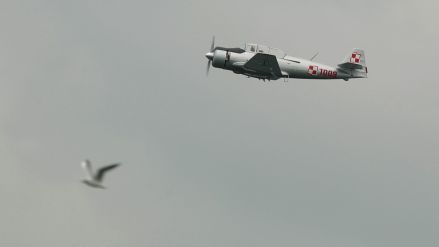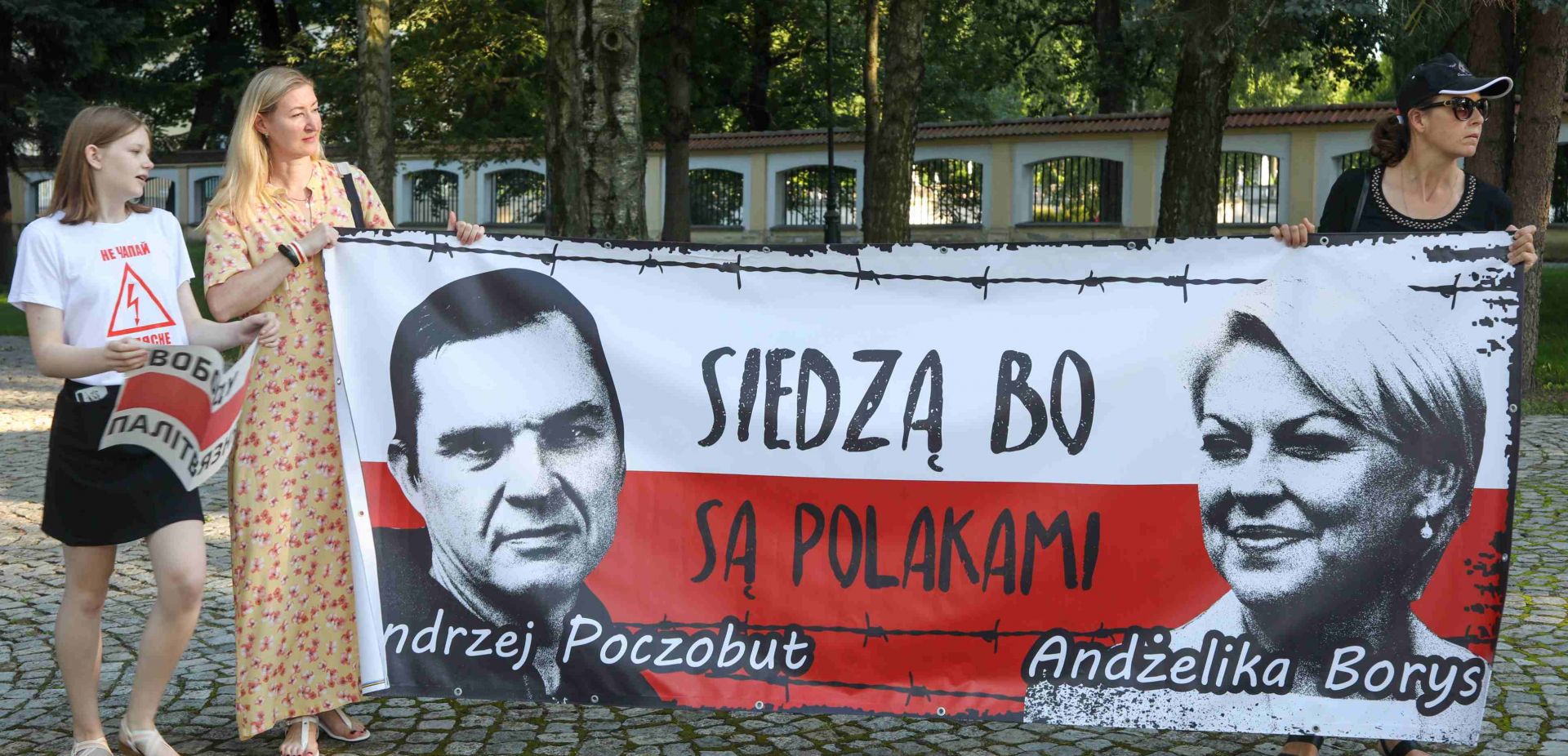
Polish pilots were fleeing the communist Poland using military aircraft.
see more
“Krzysiek from Łuków” spoke in a similar tone: “the prices went up, you need a lot of money, the inflation rate is high. There is little coal, there is not much gas either and I don’t know what will be in the future. It is the politicians to decide, we do not decide, they think everything is all right but we think it is not and we can do nothing”. There is an interesting observation: behold, it turns out that it is important for Poles to see “made in Belarus” labels on the products they buy.
The newspaper “Pravda Gomel” quotes Siergiey Klishevich, deputy to the lower house of the Belarusian parliament and a representative of a small, licensed communist party (there is another, oppositionist one): “the lives of Poles have been changing dramatically under our eyes. At first Poland was subject to a series of severe lockdowns which overwhelmed the health service, now the authorities are pouring funds to put up Ukrainian refugees and to cover military expenditures. As a result services, fuel and products are becoming more and more costly. The situation is aggravated by street crime, thefts, robbery, illegal employment in which the Ukrainian diaspora plays a key role”. Deputy Klishevich is only surprised why of their problems Poles accuse Russia and not the real guilty, that is to say, the US.
That’s how official Minsk wants Belarusians to perceive Poland.
Dictator’s entanglement
One thing is for sure: as long as Alexander Lukashenka rules Belarus, there will be no improvement in Minsk-Warsaw relations. What’s interesting, Lukashenka doesn’t benefit from the anti-Polish action at all. At the same he is losing the opportunity to make any move in international politics. Earlier on, he strived to maneuver between Russia and the West, now he’s becoming utterly dependent on Vladimir Putin.
Except that most probably the Belarusian dictator is incapable of making any move. When, after the stolen 2020 election and mass protests, he imprisoned several of his top opponents, their release and a certain softening of the dictatorship allowed him to normalize relations with Europe. But now things have gone too far; Since the 2000 election many thousands have been through Belarusian prisons, numerous social organizations and independent media have ceased to exist; the Union of Poles in Belarus has been broken up, Polish schools are being closed down, Polish press doesn’t exist.
As a matter of fact one needs to await a change of power in Minsk. Alas, before it occurs, the dictatorship will be more and more pitiless, and the anti-Polish policy will be preserved. The cemeteries of Home Army soldiers can be rebuilt – and it will happen one day. The worst of all is that in a European country of 10 million the scope of liberty has shrunk to almost nothing with people ending up in jail for a slightest sign of opposition to authority. And it is ruled by a dictator who has become completely detached from reality.
–Piotr Kościński
–translated by Dominik Szczęsny-Kostanecki
TVP WEEKLY. Editorial team and jornalists

 SIGN UP TO OUR PAGE
SIGN UP TO OUR PAGE
 The conclusion can be only one: Alexander Lukashenka is demanding something impossible from his associates and they are striving to give it to him. He wants to regain at least some support by pointing at a dangerous enemy, i.e. Poland. But for the Belarusians we aren’t – and won’t be – such an enemy. The regime is then making chaotic and senseless moves to please the dictator. If you can’t convince everybody let at least Alexander Lukashenka be convinced.
The conclusion can be only one: Alexander Lukashenka is demanding something impossible from his associates and they are striving to give it to him. He wants to regain at least some support by pointing at a dangerous enemy, i.e. Poland. But for the Belarusians we aren’t – and won’t be – such an enemy. The regime is then making chaotic and senseless moves to please the dictator. If you can’t convince everybody let at least Alexander Lukashenka be convinced.





